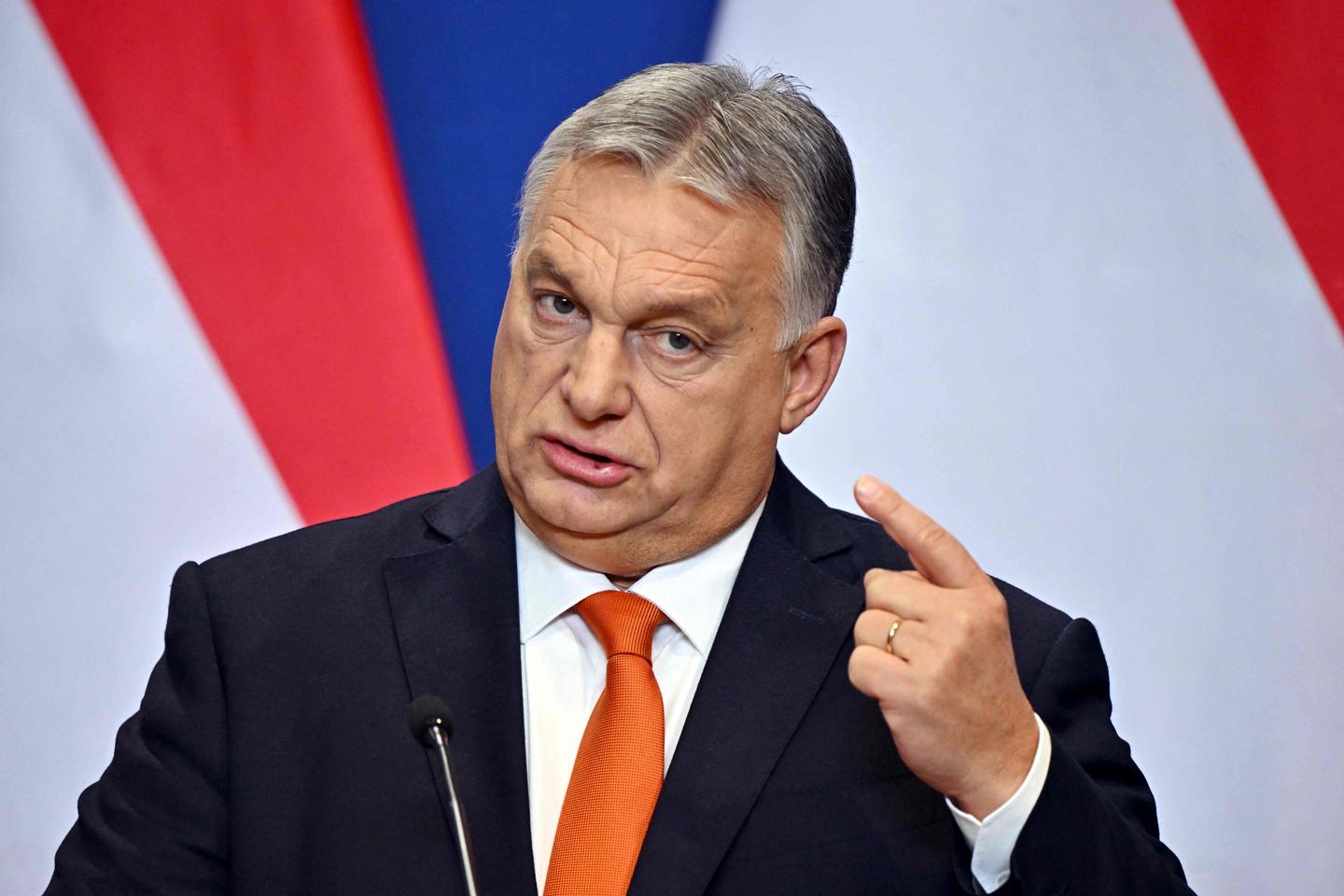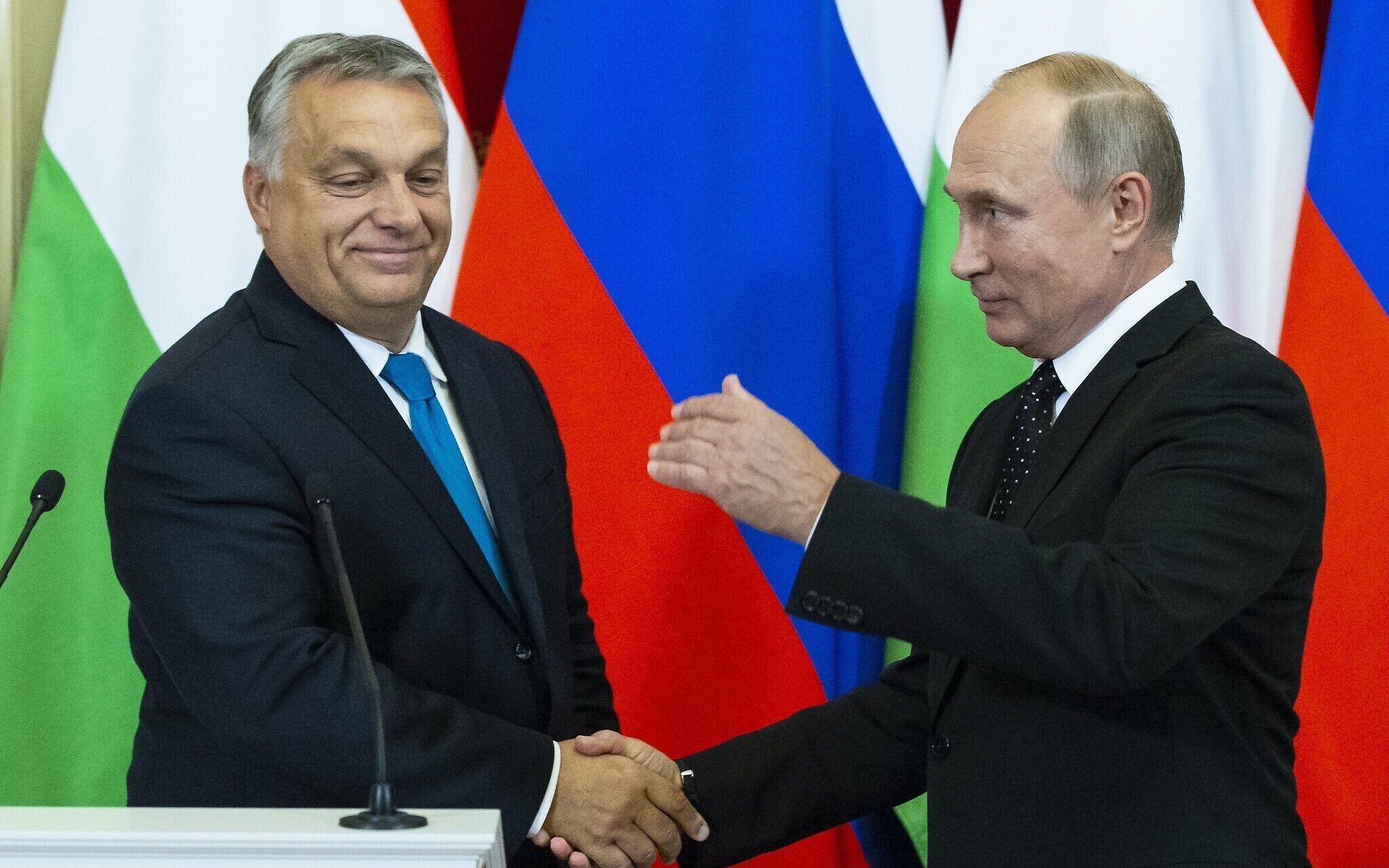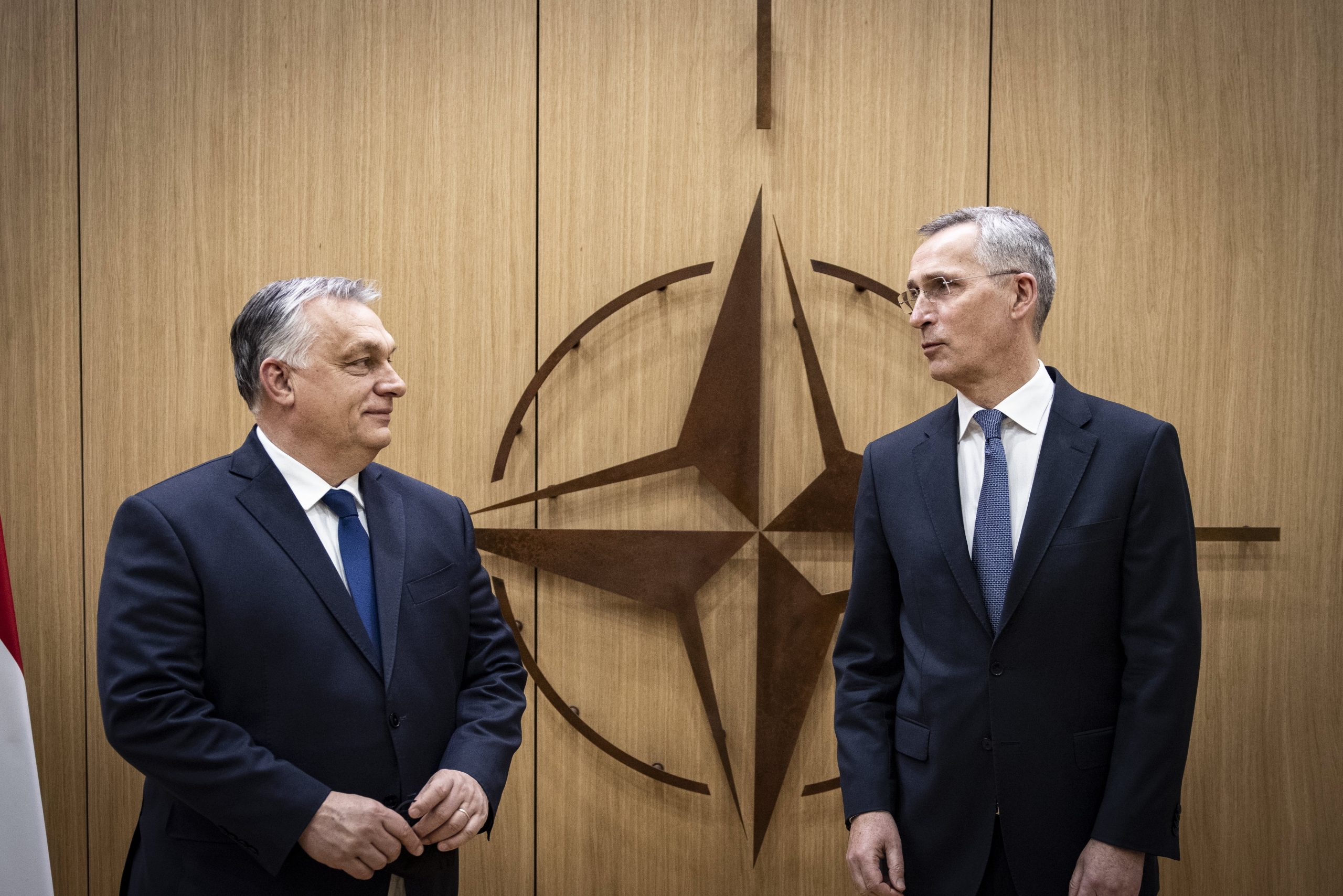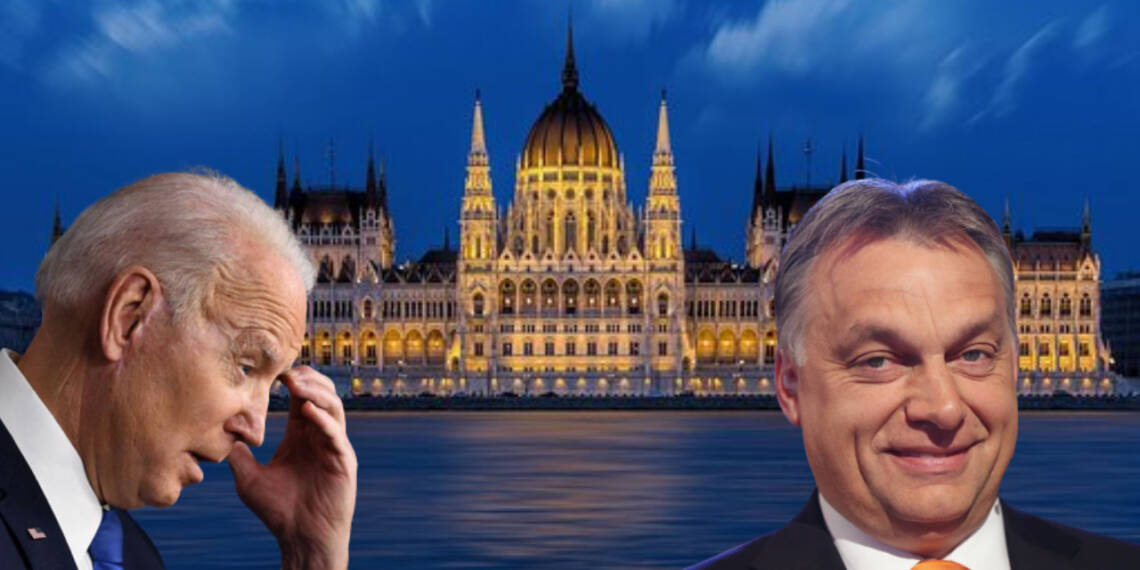With a stroke of artistry, behold the spectacle of Hungary’s Prime Minister, Viktor Orban—a man renowned for his vocal opposition to NATO. Did you catch the moment when his gaze locked onto Biden with an intensity so fierce it could leave one restless?
Viktor Orban, the Prime Minister of Hungary, is a controversial figure. His vocal criticism of NATO and affinity for Russia has put him at odds with much of the Western world. But what motivates his stance? Is it born of pragmatic calculation, or something more deeply ingrained? Orban’s animosity towards NATO appears to stem from a sense of betrayal. As a former Soviet satellite state, Hungary eagerly embraced the West after the fall of communism. However, in Orban’s view, the promises made to his country were not kept. He feels that NATO has failed to deliver on its commitments, leaving Hungary vulnerable.

At the same time, Orban’s admiration for Russia seems to be grounded in a more emotional connection. Like Putin, Orban believes that the West often destabilizes the world. Whatever the reasons behind his stance, there can be no doubt that Orban’s anger towards NATO and his love for Russia have made him a lightning rod for controversy and placed Hungary in a dominant position on the global stage.
In the political arena, Hungary’s leader Viktor Orban stands alone – a solitary figure at odds with his former allies on almost every issue. From NATO membership to sanctions on Russia, Orban has rebuffed the requests of his colleagues, insisting that the needs of his nation must come first.
Read More: Summit of Democracy: Biden Humiliates Turkey and Hungary in the most childish way
But, this approach has come at a cost for Hungary, as the country now finds itself under intense scrutiny. The EU has already blocked the country’s recovery fund due to concerns about the erosion of democratic values, and now even the US – which had previously been hesitant to engage with the controversy – is exerting pressure on Orban to change course.
Reports suggest that Washington may be preparing to take a more aggressive stance in response to Hungary’s pro-Russian stance and its hostile attitude towards the US. Diplomatic sources indicate that powerful Hungarian officials could soon be subject to sanctions as the US attempts to bring the nation back in line with the values of its Western allies. Despite these warnings, Hungary has boldly defied the US and triggered NATO’s response. President Biden’s misstep has left the United States floundering, as Hungary takes the stage alongside Russia, casting off the shackles of Western influence with a daring move that defies convention.
Hungary flaunts Russian side
On April 11th, Hungary signed new energy agreements with Moscow, cementing its diplomatic and trade ties with Russia despite the ongoing conflict in Ukraine and threats from the United States. The move has perplexed European leaders. From Moscow, Hungary’s foreign minister, Peter Szijjarto, announced that the state energy giant, Gazprom, had agreed to continue supplying Hungary with Russian natural gas. Hungary would be able to import more natural gas if necessary than what was specified in a long-term contract modified last year. The gas would flow into Hungary through the Turkstream pipeline, and the price would be capped at 150 euros per cubic meter. Hungary would pay down gas purchases on a deferred basis if market prices exceeded that level.
Read More: Petrified Biden arm twists Hungary over its European NATO plan
In another controversial move, Hungary is blocking Sweden’s NATO bid, enraging Western officials. Experts claim that Budapest’s decision to change its stance in favor of Moscow has deeper roots than simple domestic political considerations.

A senior European diplomat, speaking anonymously to discuss internal alliance dynamics, expressed frustration with Hungary’s stance on Sweden’s NATO membership, stating that there was “zero understanding” for it. The impact of Hungary’s ties to Moscow on its relationships with Western allies remains unclear as it forges its own course in international affairs.
Read More: Hungarian forint: Hungary’s currency is now stronger than both EUR and USD
In a world where most members of the European Union have distanced themselves from Russia due to Putin’s invasion of Ukraine, Hungary’s close relationship with Moscow is a bold and unusual move that highlights the country’s enduring ties to its Eastern neighbor. Hungary has frequently been Russia’s closest ally in Eastern Europe. Since the start of the war last year, Budapest has emerged as the European Union capital that is most tolerant of Russia. Like other capital cities in central Europe, government buildings in Budapest do not have Ukrainian flags flying outside them. Viktor Orbán, the far-right prime minister of Hungary, has repeatedly urged for peace talks while preventing the supply or transit of weapons through Hungary to Ukraine.

Billboards located outside the opera house and throughout central Budapest declare: “Hungarians have decided: 97% say NO to sanctions,” citing government polling in which the population was asked whether they supported EU sanctions against Russia, using leading questions. Despite Orbán agreeing to the EU sanctions, he frequently criticized their effectiveness.
Big blow to Biden and company
NATO undoubtedly wants Hungary to join its ranks to quell Russia’s influence in Europe. However, with Orban in power, it remains unlikely. Likewise, Hungary has pushed back against the United States and the European Union, dealing a significant blow to their efforts to pressure the country to abandon its ties with Russia. Furthermore, President Biden denied Hungary’s invitation to the Summit of Democracies, and Sister Ursula declared that Hungary is no longer a democracy. Hence, the situation remains fluid, but Hungary’s bold stance suggests that the country is willing to chart its own course, even if it means defying its Western allies.
Read More: A New NATO? Sounds like a good plan to Hungary and France may approve it







